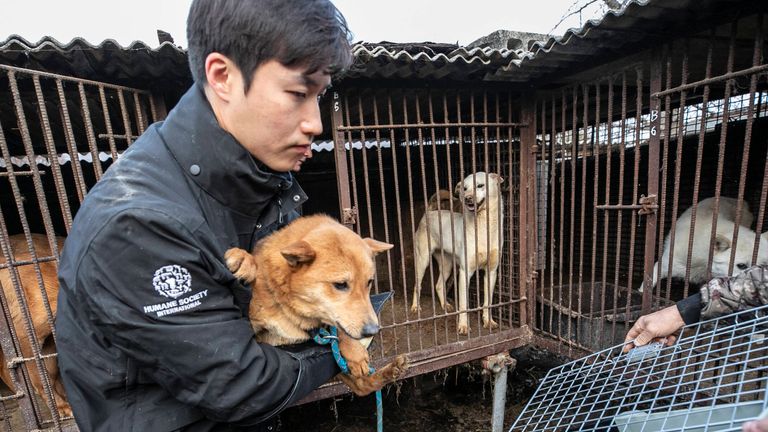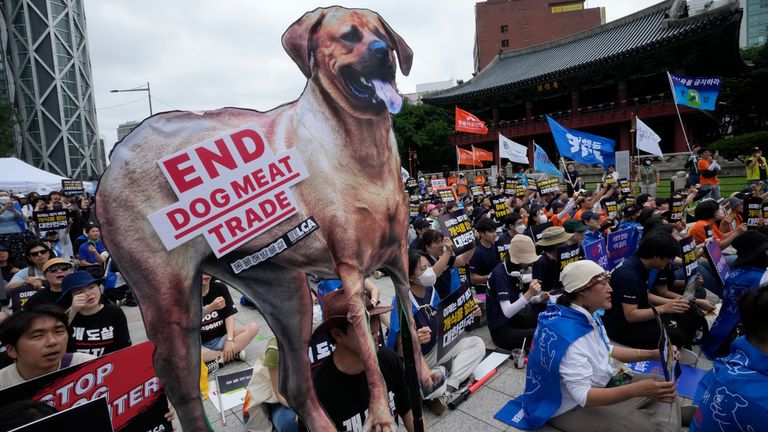South Korea has voted to ban the centuries-old dog meat industry – with campaigners calling it “history in the making”.
Hundreds of thousands of dogs are farmed and killed in South Korea each year, but attitudes have changed in recent times and demand is at an all-time low.
The ban will make the breeding, slaughter and sale of dogs and dog meat for human consumption illegal from 2027.
There will be penalties of up to three years in prison or a fine of up to 30m KRW (£18,000).
Setting up new dog farms, slaughterhouses and cooking and processing facilities will be banned immediately.
However, the bill does not stipulate penalties for eating dog meat.
South Korea’s parliament endorsed the bill by 208 votes to zero on Tuesday, but dog farmers said they planned an appeal and protests.
Support for the ban grew under President Yoon Suk Yeol, an animal lover who had adopted six dogs and eight cats.
“This is history in the making,” said said JungAh Chae, head of the Humane Society International/Korea.
“I never thought I would see in my lifetime a ban on the cruel dog meat industry in South Korea but this historic win for animals is testament to the passion and determination of our animal protection movement.”
Eating dog meat is a centuries-old practice in the country, however surveys indicate it’s now a rarity – mostly undertaken by some older people.
It used to be viewed as a way to improve stamina in the country’s humid summer.
Campaigners say most dogs are electrocuted or hanged, but those in the industry claim slaughtering has become more humane.
Estimates on the numbers of dogs being bred for meat vary.





